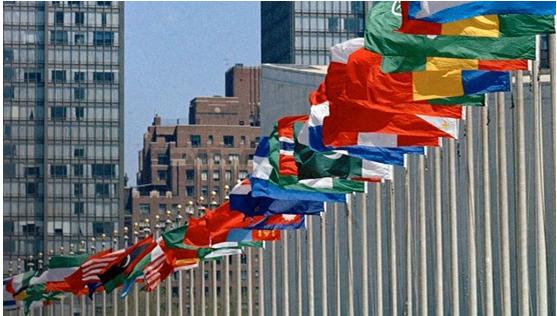Only Israel and the United States voted on Wednesday, November 1, against a UN resolution condemning the US embargo on Cuba, in a break from last year’s abstention by the previous American administration of Barak Obama that highlighted a thaw in US-Cuban relations.
The resolution was overwhelmingly adopted by a vote of 191 to 2, leaving the US and Israel as the only opposing voices in the General Assembly. The 193-nation assembly has voted overwhelmingly every year since 1991 to demand an end to the imperialist embargo, delivering a rebuke to Washington over its Cuba policy.
In a hawkish speech to the General Assembly prior to the vote, US Ambassador to the United Nations Nikki Haley blamed Havana for the embargo. “For the 25th time in 26 years, the United States will vote against this resolution,” Haley told the assembly. She accused Havana of using the General Assembly vote every year “as a shiny object to distract the world’s attention from the destruction it has inflicted on its own people and on others in the Western Hemisphere… the United States does not fear isolation in this chamber (of the General Assembly) or anywhere else.” Haley said the General Assembly has no power to end the decades-old embargo. She scorned the General Assembly vote as “political theater” and a waste of time. The United States abstained last year in a similar vote at the General Assembly. Haley explained that the about-face is due to the election of Donald Trump as US president and her appointment as the United States’s ambassador to the UN.
Trump in June announced new travel restrictions and banned trade with Cuban businesses linked to the military and the intelligence services, a move that put key economic sectors including tourism out of reach to American firms. The United States restored diplomatic ties with Cuba in July 2015 and a month later re-opened its embassy in Havana. Former president Barak Obama made a landmark visit to the socialist island in March 2016.
Cuban Foreign Minister Bruno Rodriguez Parrilla fought back, saying the US blockade is “a flagrant, massive and systematic violation of the human rights of all Cubans” and qualifies as “an act of genocide.” “The human damage caused by the implementation of this policy is incalculable. There is not a single Cuban family or social service that has not suffered the deprivations and consequences resulting from the blockade,” he told the assembly prior to the vote. “President Trump does not have the least moral authority to question Cuba,” said Rodriguez Parrilla. “He is heading a government of millionaires aiming to implement savage measures against low-income families, against the poor people in this country, minorities and immigrants.” “He is pursuing a program that encourages hatred and division,” Parilla added.
The Group of 77 (G77) of developing countries announced that it regrets the new policy of Trump aimed at strengthening the embargo against Cuba. “The group believes this is a setback in the process of achieving normalized relations between the two countries,” said Diego Morejon Pazmino, the Ecuadorian ambassador to the United Nations, on behalf of the G77 and China. The G77 and China expressed their deep concern about the prolonged negative effects that the economic sanctions and travel restrictions have had on Cuba and its people.
From April 2016 to June this year, the impact of the U.S. embargo on Cuba’s foreign trade amounts to more than US$4 billion. Limited foreign investment and difficult access to development credits translate directly into economic hardship and humanitarian impacts on the people of Cuba, the Ecuadorian ambassador told the General Assembly. If these economic sanctions continue, Cuba’s development potential will be unfairly undermined and it would be impossible for his country to successfully embark on the path toward sustainable development, he warned.
China regretted that previous General Assembly resolutions on the issue were not implemented. The blockade violates the purpose and principles of the UN Charter and causes enormous economic losses to Cuba, said Wu Haitao, the charge d’affaires of the Chinese mission to the United Nations. “China has always advocated respect for a country to independently choose its own system and path of development, and opposed unilateral sanctions against other states by military, political, economic and other means,” Wu told the assembly prior to the vote. The world is undergoing transformation and peace and win-win cooperation have become a trend, he said. Exchanges and cooperation on equal footing among countries are part of this trend; dialogue on equal footing and friendly consultations represent the best way to resolve differences, he said. He asked the United States and Cuba to continue the path of normalization of relations, which, he said, is in the interests of both countries. He asked the United States to lift its embargo on Cuba.
Related: Again, Only US and Israel Vote vs. Motion to End Blockade on Cuba



